What tunes the guys choose to play at a weekly rehearsal sometimes depends on who is in the room to listen. Some visitors can listen as powerfully as the players can play.
Such a person was the marvelous Nancy McClellan. She couldn't show anyone how to play — Nancy didn't pick, strum or bow an instrument — but she surely did could teach everyone how to listen!
Whenever Nancy drove in from her Ashland, Ky., home to be in the room — as she did one chilly evening 15 years ago this week — a grinning Joe Dobbs was right there to fiddle her favorites.
“Blackberry Blossom”
First on that list was always “Blackberry Blossom,” a classic breakdown popular in old time, Celtic and bluegrass circles.
Click the button below to hear the Nov. 11, 2009, episode of the Flood podcast that celebrated that Nancy’s visit that week and her first-favorite tune:
About the Song…
Wikipedia says “Blackberry Blossom” has appeared in more than 250 song books. The tune became popular as recorded in 1935 by Fiddlin’ Arthur Smith of Grand Ole Opry fame.
His version quickly supplanted an earlier tune of the same name that was popularized by Santford Kelly from Morgan County, Ky. Nowadays, that older tune is sometimes called “Garfield's Blackberry Blossom” to differentiate it from the Smith tune.
Betty Vornbrock and other fiddlers have noted a similarity between “Garfield’s Blackberry Blossom” and the West Virginia tune “Yew Piney Mountain,” a variation of which was known from the playing of the late great Kentucky fiddler J.P. Fraley.
And by the way, Charles Wolfe wrote in his book The Devil’s Box that Arthur Smith's tune was named in a radio contest in which listeners submitted suggestions for his unnamed piece.
“The Ash Grove”
Another song on the playlist that night — and on any night when Nancy was in the room — was a 19th century folk melody called “The Ash Grove” (or Llwyn Onn in its original Welsh).
In the years before Nancy died in the fall of 2013, she often made her trips to Flood nights at the Bowen House in the company of her dear friend Zoe Brewer to sit with their mutual friend Rose Riter.
A particularly sweet evening was in July 2011. Nancy made a special trip to Huntington because she knew Joe would be joined in the room that night by his buddy guitarist Jesse Smith. As illustrated in Pamela Bowen’s video below, a highlight of the evening was Joe and Jesse’s lovely duet on “Ash Grove”:
About the Song…
The first published version of “Ash Grove” was in 1802 in harpist Edward Jones’ book, The Bardic Museum. About four years later a version with lyrics appeared, under the name “Llwyn Onn,” which told of a sailor's love for "Gwen of Llwyn.”
The melody is likely much older, though. A similar air appears in “The Beggar’s Opera” by John Gay (1728), in the song "Cease Your Funning.” This later was arranged by Beethoven in his Twelve Scottish Songs.
Meanwhile, in 1922, English folk song collector Frank Kids contended that Gay's air derives from an even older Morris dance tune called "Constant Billy,” which is first known in John Playford's Dancing Master (1665).
The “Ash Grove” melody has appeared on holiday albums over the years and has been adapted in hymns, most recently in 1996 in Robert Cullinan’s “On This Night Most Holy.”
On the Screens
The song also has had moments on screens large and small. Early in John Ford’s How Green Wash My Valley in 1941, “Ash Grove" is sung in Welsh by a group of miners.
The song also was featured in the 1980 BBC mini-series Pride and Prejudice.
It was used in a video game — “Black & White,” a 2001 release by Lionhead Studio — with lyrics crafted to accord with the game's plot.

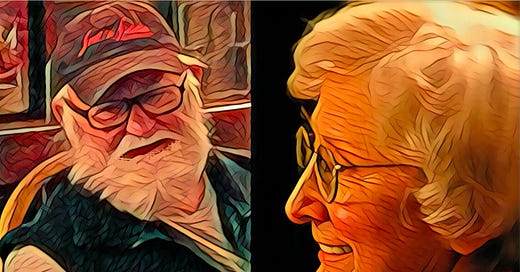




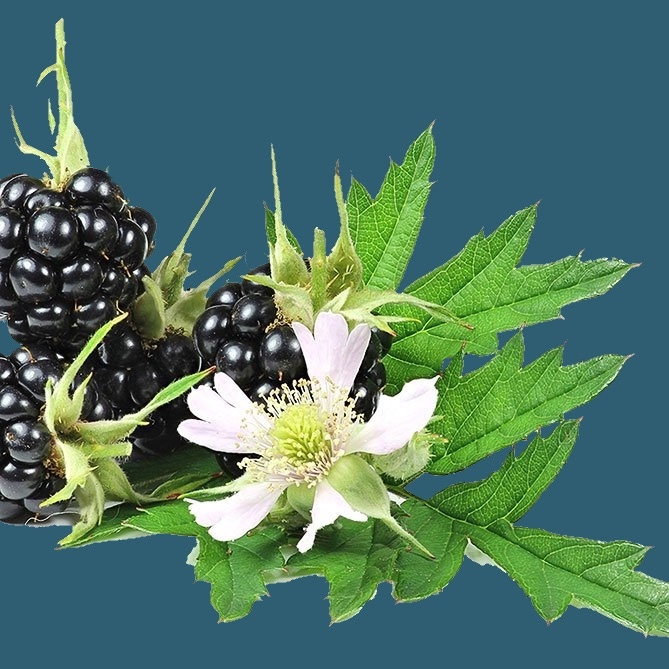


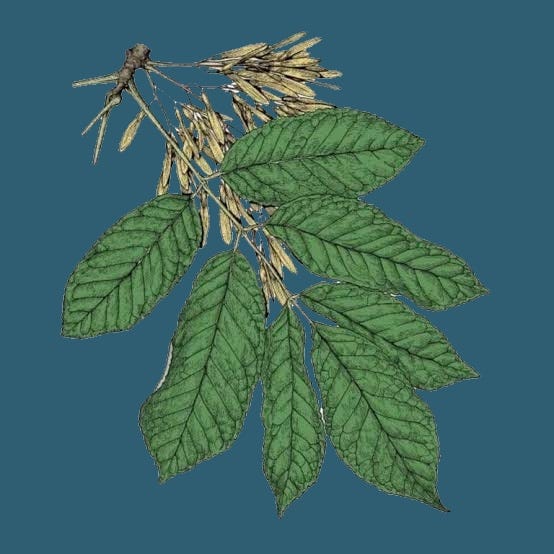
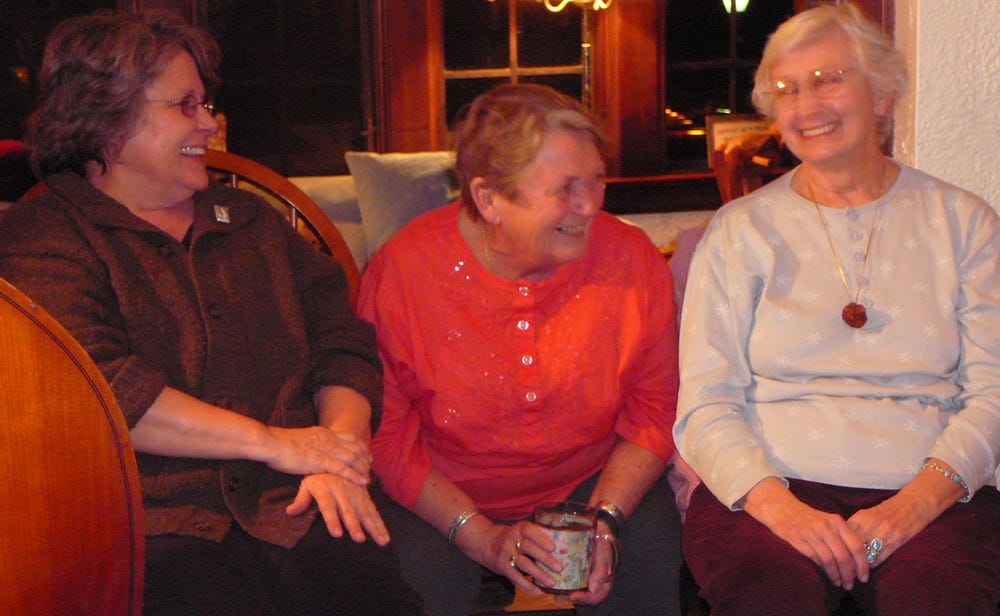
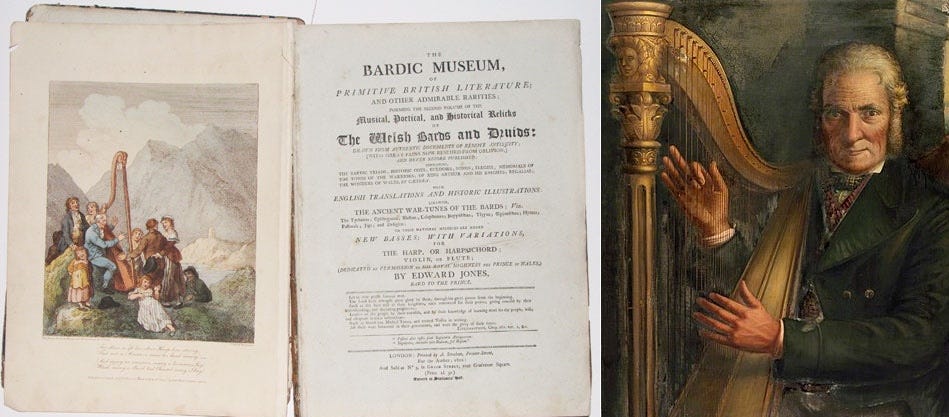
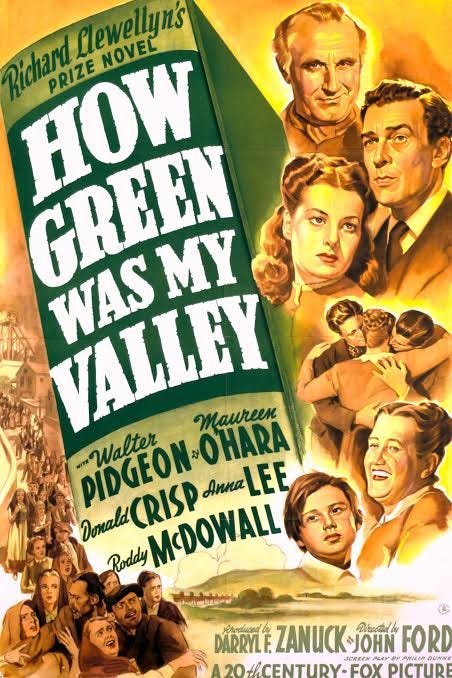
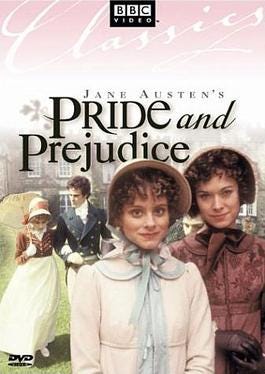
Wonderful tribute to both Joe and our beloved Nancy. 🎶🩷💙🎻